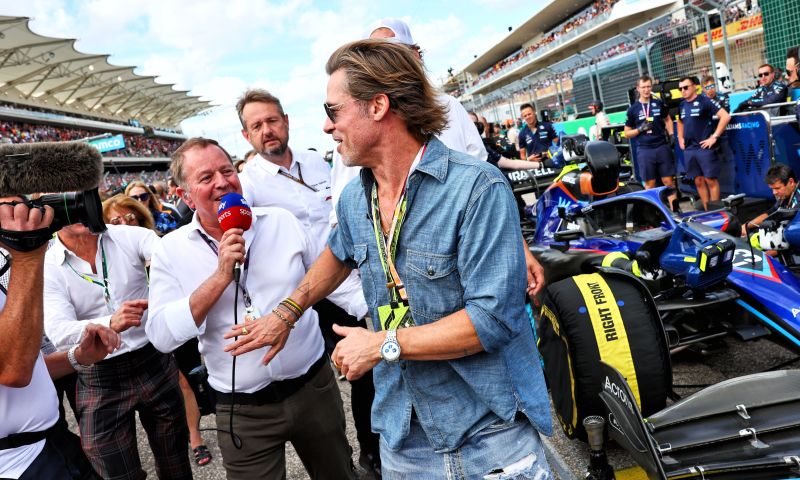Brundle backs Russell: 'We need to review that'
F1 News

- GPblog.com
The three red flags at the Australian Grand Prix caused controversy on several sides. Martin Brundle is one of the people who was completely in agreement with the race committee's decision. The former F1 driver is also outspoken about whether or not tyre changes should be allowed at times when the race is stopped.
George Russell captured the lead immediately after the start of the Grand Prix. After Alexander Albon's accident, the Mercedes driver dived straight into the pits for an early tyre change. However, his potential advantage vanished like snow in the sun when race control waved the red flag on the following lap. His rivals for victory, Lewis Hamilton and Max Verstappen, had the advantage of making a 'free' pit stop during the mandatory break.
Regulatory change
Russell said afterwards that it should be reconsidered whether tyre changes during a red flag situation should be allowed. In Brundle, the Mercedes driver found an ally. On the website of Sky Sports he says: "The purpose of being able to change your tyres under a red flag is there has almost always been an incident, debris, damage, you are allowed to change your front wings, and if you have got punctures or whatever, you are allowed to change your tyres. At that point, it is considered prudent to allow every team to put a fresh set of tyres on."
However, the regulations do not take into account the fact that drivers who have just been to the pits for a fresh set of tyres could be at quite a disadvantage. "Now it does affect the race dramatically and we have to take into consideration that fans see that often and think it is unfair that somebody effectively gets a free pit stop due to a red flag."
He continued: "They could have even caused the red flag and been involved in the incident and get a fresh set of tyres and front wing for example. But sometimes that plays into your hands, sometimes it doesn't. I think we need to review that but as always in Formula 1, it is a hugely-complicated business and the unintended consequences of that."

